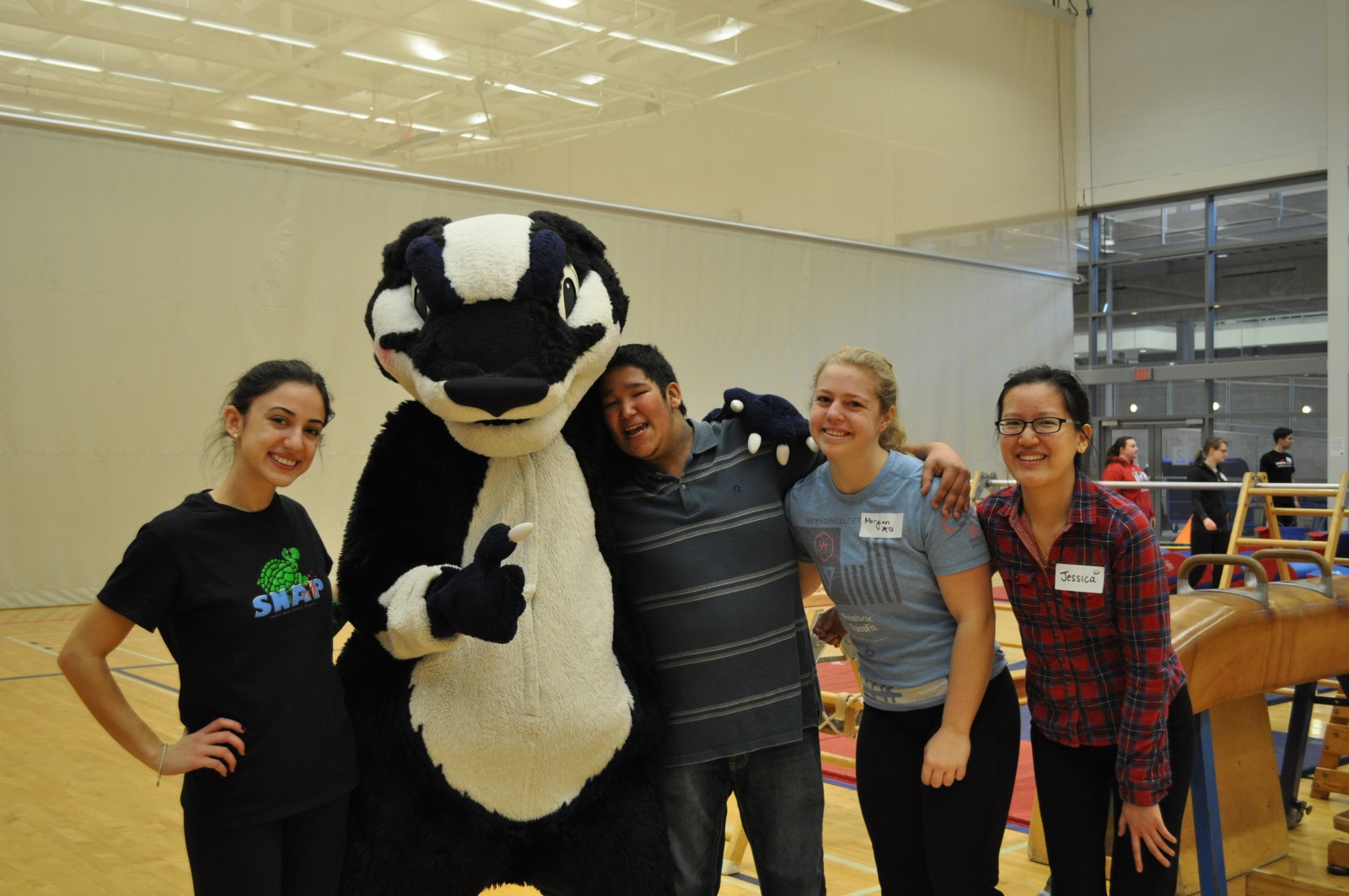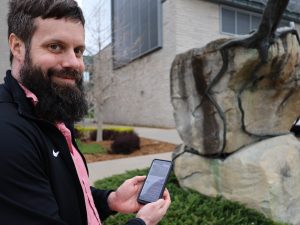 SNAP coordinator Amanda Bava, left, Boomer, SNAP participant William Rolon, volunteer Morgan Williams and volunteer Jessica Wong.
SNAP coordinator Amanda Bava, left, Boomer, SNAP participant William Rolon, volunteer Morgan Williams and volunteer Jessica Wong.A Brock-run program for children and youth with special needs in Niagara has now hosted over 33,000 participants.
The Special Needs Activity Program (SNAP) has been offering developmentally appropriate, movement education to children and youth with special needs in the Niagara Region since 1994.
SNAP provides individualized programming designed to meet each child’s specific movement needs.
At its inception, SNAP began as an independent study program of then Graduate student Jason Candy, under the direction of Kinesiology Professor Maureen Connolly.
While SNAP helps to fulfill the university’s commitment to experiential learning and community engagement, more importantly, it offers the opportunity for school-aged participants of any ability to have an activity experience that is fun, dignified and safe.
Since then, Connolly has continued to expand and adapt the program to meet the ever changing needs of the participants, as well as the 200 student volunteers who participate in the program each semester.
“SNAP has functioned as a site for learning, teaching and research at Brock for over 20 years,” says Connolly.
“While SNAP helps to fulfill the university’s commitment to experiential learning and community engagement, more importantly, it offers the opportunity for school-aged participants of any ability to have an activity experience that is fun, dignified and safe.”
In addition to being the largest on-campus site for experiential learning, SNAP is southern Ontario’s longest-running and largest service learning site.
“Our capacity to provide this program is unique in the Niagara Region,” says Elyse Lappano, Experiential Learning Coordinator for Inclusive and Adaptive Physical Activity.
“Working in collaboration with all three school boards in the Niagara Region and a number of disability service organizations, we are able to provide our participants with support they would not otherwise be able to access in Niagara,” says Lappano.
“Our ability to provide one-on-one facilitated instruction to each child creates the least restrictive environment possible. Depending on the individual’s requirements, we can even pair two or three students with a single child,” says Lappano.
SNAP provides up to 25 undergraduate students each year with the opportunity to fulfil an honours thesis credit, and six graduate students with the chance to serve as mentors.
“I’ve been involved with SNAP in various capacities for the last 8 years, initially as an undergraduate student, then as a graduate student mentor. Seeing first-hand the positive benefits this program is having on the health of children and youth in our community is very rewarding,” says Lappano
The success of SNAP has inspired other programs at Brock which have been created to operate under the same service learning, embedded curriculum and station based pedagogy approach, including; CHARM (Confident Healthy Active Role Models), Saturday SNAP and the Autism Spectrum Disorder summer movement camp.
This article was written by Andra Lenius, Graduate Officer, Professional Programs, Faculty of Applied Health Sciences.








